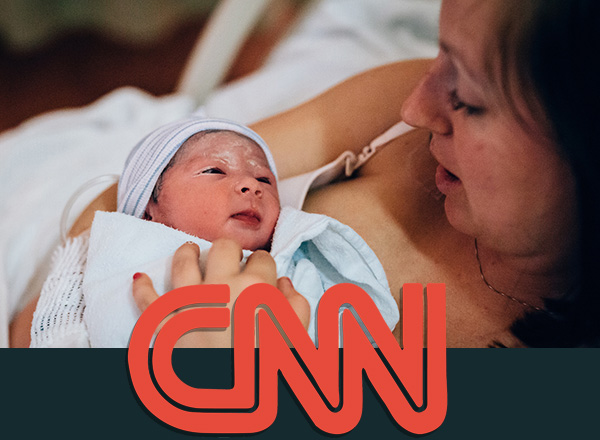IVF by the Numbers: Pregnancy Rates for Every Age Group

If you're thinking about in-vitro fertilization (IVF), you probably have one big question on your mind: “What are my chances of getting pregnant?” While IVF has helped millions start or grow their families, success isn't the same for everyone, and age plays a big role.
In this guide, we'll walk you through IVF pregnancy rates by age, explain what these numbers really mean, and help you understand how your chances grow with each IVF cycle.
No complex terms. No scary medical talk. Just real, helpful information in a simple format.
Why Age Matters in IVF
When it comes to fertility, age affects both egg quality and quantity. As you get older, your body naturally produces fewer eggs, and the ones that remain may not be as strong or genetically healthy. This doesn't mean getting pregnant is impossible, it just means that your chances may change depending on your age.
IVF helps overcome many fertility hurdles, but it still works best when your eggs are at their healthiest.
Pregnancy Rates vs. Cumulative Pregnancy Rates: What's the Difference?Before we dive into the numbers, let's break down two key terms:
- Pregnancy Rate refers to the chance of getting pregnant in a single IVF cycle.
- Cumulative Pregnancy Rate The cumulative pregnancy rate includes all pregnancies resulting from a single IVF cycle, whether the embryos were transferred fresh right after being created or later during a frozen embryo transfer.
Think of it like this: even if your first try doesn't work, your chances improve with each round, and that's where the cumulative number gives you
a clearer picture of success.
IVF Success Rates by Age Group
Here's how the numbers stack up for each age group. These statistics are based on real-world data and give you a helpful snapshot of what to expect.
|
|
|
|
|
|
|
|
|
|
|
|
|
|
|
|
|
|
|
|
Let's break it down further so you can see what these numbers mean for you.
Under 29: Strong Start, High Confidence
If you're under 29, your chances are looking great. With a 65% success rate per cycle and a cumulative success rate of 78%, this age group has some of the best odds for IVF success.
Why?
Your eggs are generally at peak health, and your body is more likely to respond well to IVF medication. Even if the first cycle doesn't work, there's a strong chance it will happen within the next couple of tries.
Age 30-23: Still Very Promising
Moving into your early 30s? You're still in a strong position. IVF has a 63% success rate per cycle in this age group, with a 76% success rate after three tries.
What changes?
Your eggs are slightly older, but still high in quality. IVF outcomes remain very favorable, and doctors may only need to make minimal adjustments to help you conceive.
Age 35–39: Some Decline, But Still Hopeful
This is where things start to shift a bit more. IVF success dips to 55% per cycle, and the cumulative rate is 67% after three cycles.
Is it still possible?
Absolutely. Many people in this age group become parents through IVF. However, your doctor may recommend additional steps, such as more intensive monitoring, lifestyle changes, or advanced embryo testing to improve your chances.
Age 40–44: A More Challenging Road
By this point, egg quality and quantity have declined significantly for most people. The per-cycle success rate drops to 45%, and the cumulative rate after three tries is 59.1%.
Does this mean it's too late?
Not at all. Many people in this age group still achieve healthy pregnancies. However, your doctor may suggest considering options like donor eggs or more advanced lab techniques to increase success.
What Can Help Improve IVF Success at Any Age?
No matter your age, there are things you can do to support your fertility and give your IVF cycle the best possible chance:
- Eat a balanced, nutrient-rich diet
- Stay active , but avoid high-intensity workouts right before treatment
- Reduce stress
- Quit smoking and limit alcohol
- Take supplements recommended by your fertility doctor
Don't Be Discouraged by the Numbers
Yes, IVF success rates go down with age, but that doesn't mean your journey ends here. Every person is different, and success often comes after just a few adjustments to treatment or timing.
In fact, many clinics are seeing improved outcomes thanks to technology like embryo freezing, genetic screening, and personalized IVF protocols.
The key is to talk openly with your doctor, ask lots of questions, and take each step one day at a time.
Frequently Asked Questions
Does IVF always work on the first try?
Not always. Many people need more than one cycle. That's why cumulative success rates are so helpful, they show that your odds go up with each attempt.
Can I do IVF if I'm over 40?
Yes, you can. Success rates are lower, but still very possible, especially with extra support like donor eggs or specialized treatments.
Is there an age when IVF stops being an option?
While many clinics set limits around age 45–50, it really depends on your overall health, your egg quality, and whether you're open to using donor eggs.
Why are success rates higher for younger people?
Younger eggs are more likely to be healthy and lead to successful implantation and pregnancy. That's the main factor.
Should I freeze my eggs if I'm not ready yet?
Egg freezing is a smart option if you're in your 20s or early 30s and think you might want kids later. It gives you more flexibility and higher success rates down the road.
How many IVF cycles should I try?
Many doctors recommend trying at least three cycles if you're physically and emotionally able. Your odds improve with each try, especially with personalized adjustments.
Know Your Numbers, but Trust Your Journey
IVF can feel overwhelming, especially when you're looking at charts and percentages. But behind every statistic is a real story, a couple who kept going, a woman who made the leap, a family that finally came together.
Knowing your numbers helps you set realistic expectations and make informed decisions. But always remember, your age is just one piece of the puzzle.
Whether you're 28 or 42, if you're thinking about IVF, you're already taking the bravest step. And with support, knowledge, and the right medical team, your path to parenthood is entirely possible.

